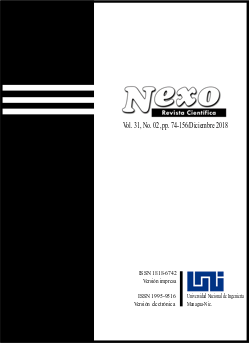Maximum and minimum inventory policy in multi-echelon supply chains. Case study: a pharmaceutical distribution company (Professional paper)
DOI:
https://doi.org/10.5377/nexo.v31i2.6837Keywords:
Min-Max inventory policy, ABC-XYZ classification, Inventory Policy Simulation, Inventory policy optimization, Tabú Search, Scatter SearchAbstract
This research addresses the evaluation of the Min-Max inventory policy for serial supply chains. The study is conducted as a case study in a pharmaceutical distribution enterprise. The inventory policy is tested over the best-selling product of said company. In this study, the inventory policy is evaluated in terms of service level and inventory turn-over. A solution approach from the literature is compared with optimal or near optimal solutions. The optimization methods include, but are not limited to, Tabu Search and Scatter Search algorithms. Experimental results derived from simulations of the inventory policy demonstrate that the solution approach from the literature guarantees a high service level, but presents opportunities of improvement in terms of inventory turn-over.
Downloads
8815
Downloads
Published
How to Cite
Issue
Section
License
The authors who publish in Nexo Scientific Journal agree to the following terms:
- Authors retain the copyright and grant the journal the right of the first publication under the license Creative Commons Attribution License, which allows others to share the work with a recognition of the authorship of the work and the initial publication in Nexo Scientific Journal.
- Authors may separately establish additional agreements for the non-exclusive distribution of the version of the work published in the journal (for example, in an institutional repository or a book), with the recognition of the initial publication in Nexo Scientific Journal.
- Authors are allowed and encouraged to disseminate their works electronically (for example, in institutional repositories or in their own website) before and during the submission process, as it can lead to productive exchanges, as well as earlier and greater citation of published works.










